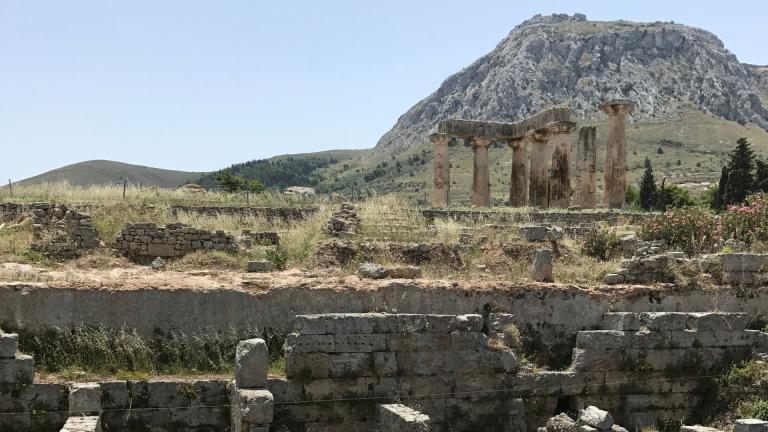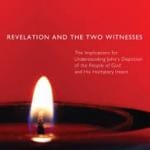
NB: I would like to begin by stating that it is my conviction that this series of posts may be the most important series I have written—though I do not deny that I am biased in this assessment. And I reserve the right to make this declaration about a future series.
I say this because I believe it is critical for the church today, especially as we endeavor to move forward amidst the political quagmire that has engulfed our country, to understand the biblical teaching regarding the beast and the nature of the kingdoms.
I should reiterate, however, as I stated in my last post, that I am not sure you will like what I have to say. (though you should keep reading anyways: you never know, you might like it!)
I opened my last post by stating, “Before I proceed, I suppose that it might be of help if I make my landing spot clear.” I then stated that I believe that the beast is empire.
There are, however, two caveats that need to be addressed over the course of this series of posts:
First, the beast is more than empire.
Second, what John (the author of the book of Revelation: see Rev 1:9) meant by empire is not what empire has become in the last few generations.
In other words, “empire” for us is not what “empire” was for John.
NB: I will develop this last thought in subsequent posts.
The beast of Rev 13:1-8 and Daniel 7:1-8
To understand the nature of the Beast as described in Revelation 13 and what it means for us today we must turn to the text of Daniel 7.
G. K. Beale, who is one the most authoritative commentators on the book of Revelation today, notes the parallels between Daniel 7 and Revelation 13.[1]
Compare:
- Rev 13:1 Dan 7:2-3, 7
- Rev 13:2 Dan 7:3-6
- Rev 13:4 Dan 7:6, 12
- Rev 13:5a Dan 7:8, 25
- Rev 13:5b Dan 7:25
- Rev 13:6 Dan 7:25
- Rev 13:7a Dan 7:21
- Rev 13:7b Dan 7:14
There is little doubt that Daniel 7 serves as the primary background for John’s depiction of the Beast.
In Daniel’s vision, there were four beasts. A careful look at Rev 13:1-8 suggests that John has combined Daniel’s four beasts into one. This means that discerning the identity of the beasts in Daniel 7 should provide insight into the beast of Revelation 13.
Who/what are the beasts of Daniel 7?
The identity of the four beasts in Daniel is plainly stated: “These great beasts, which are four in number, are four kings who will arise from the earth” (Dan 7:17). Of course, they were not merely kings but kingdoms.
There is little doubt that the beast of Revelation 13 also represents a king or kingdom. In fact, it is widely acknowledged that John had Rome in view.
But the beast of Revelation 13 is more than Rome.
The beast as all empires/nations
In the popular Christian marketplace of end-times speculation, it has been touted that the beast of Revelation 13 represents a last days revival of the Roman empire. This isn’t necessarily wrong—even though I wouldn’t say it way—it is just not complete.
It is my contention, which I spell out in some detail in my upcoming commentary, and which, it should be stated, is widely recognized among the scholarly community, that the beast of Revelation 13 represents all empires/nations in history.
Why would I and other commentators say this?
One of the key reasons for concluding that the beast is all empires/nations in history is that Rev 13:1-8 combines all four of Daniel’s beasts into one. John has done so because he intends for us to recognize his beast is a representative of all empires/nations.
NB: There is something to be said for the fact that “four” throughout the apocalyptic writings represents totality with regard to creation (this is surely derived from the notion of the four directions and the four corners of the earth: see Ezek 7:2; Isa 11:12).
The beast is empowered by Satan
Revelation makes it clear: Satan (staring as “the Dragon”: cp Rev 12:9) empowers the beast: “the dragon gave him his power and his throne and great authority” (Rev 13:2).
This corresponds with the rest of the NT’s depiction of Satan. During Jesus’ temptations in the wilderness, Satan offers Him the kingdoms of the world:
“Again, the devil took Him to a very high mountain and showed Him all the kingdoms of the world and their glory; and he said to Him, “All these things I will give You, if You fall down and worship me” (Matt 4:8-9).
Satan, of course, is able to offer Jesus the kingdoms of the world because he has (had) authority over them.
Jesus as the King of kings
It is worth noting that what Satan was offering Jesus is the very thing for which Jesus came. That is, Jesus came in order that, among other things, He might become the ruler of the kings of the earth.
Satan’s offer, of course, was for Jesus to become the ruler of the kings of the earth at his bidding and by foregoing suffering. This must have been truly tempting for Jesus!
Of course, Jesus was to become the King of kings by the Father’s bidding and through suffering.
Beast (empire/nations) opposes Christ and His kingdom
The beast of Rev 13:1-8, then, represents Satan’s efforts to empower all empires/nations.
This leads us to ask, “for what purpose is Satan empowering empires/nations?” I would begin by noting that he empowers the nations to oppose Christ and His kingdom. More specifically, Satan empowers the nations to oppose the people of God.
That the beast stands opposed to Christ, His kingdom, and most notably the people of God runs throughout the pages of the NT. It is made explicit in Rev 13:7: “It was also given to him [the beast] to make war with the saints and to overcome them.”[2]
The beast’s waging war with the people of God is also clearly stated in Rev 11:7. There it is said that “the beast that comes up out of the abyss will make war with them [the two witnesses], and overcome them and kill them.”
(see my Revelation and the Two Witnesses for further discussion). 
In addition, Rev 20:7-9 notes, “When the thousand years are completed, Satan will be released from his prison, and will come out to deceive the nations which are in the four corners of the earth, Gog and Magog, to gather them together for the war; the number of them is like the sand of the seashore. And they came up on the broad plain of the earth and surrounded the camp of the saints and the beloved city, and fire came down from heaven and devoured them.”
Kingdom of God v nations/empire
In a future post, I will expand on the distinctions between the nations and the kingdom of God. For now, I will simply note that one of the key distinctions between them is what “power” looks like in each.
Jesus makes this observation when He declares to His disciples,
“You know that those who are recognized as rulers of the Gentiles lord it over them; and their great men exercise authority over them. But it is not this way among you, but whoever wishes to become great among you shall be your servant; and whoever wishes to be first among you shall be slave of all. For even the Son of Man did not come to be served, but to serve, and to give His life a ransom for many” (Mark 10:42-45)
What does all this mean?
In the next several posts, I will note that empires/nations and the Kingdom of Christ have fundamentally different aims.
For now, I will note:
- Empire/nations stand opposed to Christ, His kingdom, and the people of God.
- Empire/nations and the Kingdom of Christ manifest power in radically different ways.
This, of course, has implications for a significant number of issues. It certainly should impact how we approach the upcoming elections.
Our goal is to keep these posts free of charge. I do not intend to ever hide them behind a paywall. I can only do this if those of you who have been blessed by them and can afford to give ($5, $10, $25, or more/month) do so. You can give a tax-deductible contribution by following this link.
Please share this post and let others know about determinetruth.
If you wish to view this blog on your smartphone through the Determinetruth app simply download the “tithe.ly church” app on your smartphone and insert “determinetruth” as the church name you wish to follow. Once it is loaded, simply click on the “blog” icon and it will automatically load.
If you would like to have Rob speak at your church or organization in person or via zoom, please let us know by filling out the contact info on the Contact me tab on this site.
Remember that our friends at Hearts & Minds, an independent bookstore in central Pennsylvania, have offered to give our listeners a 20% off on nearly anything ordered. Just mention Determinetruth and they will get back to you promptly with personalized service like you rarely see these days.
[1] Beale, Revelation, 698.
[2] Cp Dan 7:25.












